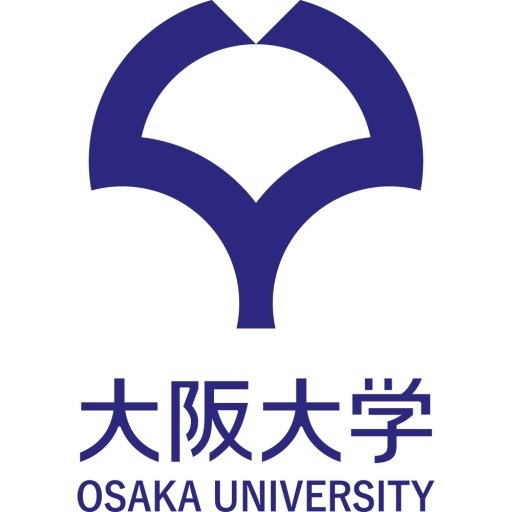Photos of university
The University of Tokyo offers a comprehensive program in Agricultural Development Studies designed to equip students with the knowledge and skills necessary to address the complex challenges faced by agricultural systems worldwide. This program emphasizes a multidisciplinary approach, integrating principles from agriculture, economics, environmental sciences, and social sciences to foster sustainable development in rural and farming communities. Students will engage with topics such as agricultural innovation, food security, rural development policies, climate change impacts, and resource management. The curriculum combines theoretical foundations with practical applications, providing opportunities for fieldwork, research projects, and collaborations with industry stakeholders. Through coursework, seminars, and hands-on experiences, participants will gain a deep understanding of agricultural productivity, sustainability practices, and the socio-economic factors influencing rural livelihoods. The program aims to prepare graduates for careers in development organizations, government agencies, research institutions, and private sectors dedicated to agricultural advancement. Graduates will be well-equipped to contribute effectively to policy formulation, agricultural consultancy, project management, and sustainable farming initiatives. By fostering a global perspective and encouraging innovative thinking, this program ensures that students are capable of addressing both local and international agricultural development challenges. With the University of Tokyo’s rich academic resources and expert faculty, students will have access to cutting-edge research, state-of-the-art technology, and diverse learning environments. Ultimately, the Agricultural Development Studies program seeks to develop leaders and changemakers committed to transforming the agricultural sector and promoting sustainable development worldwide.
The research component of the MSc program and the entire PhD program are conducted under the supervision of one or more of the School’s faculty. Students have opportunities to work with suitable members of staff to satisfy their own requirements and research interest.
- PLANT SCIENCE
- PLANT MATERIAL SCIENCE
- PLANT BIOTECHNOLOGY
- ECONOMICS
- ANIMAL SCIENCE
- FOOD SCIENCE
- AGROINFORMATICS
- FORESTRY
- FISHERIES
- Application form
- Proof of a Master’s degree
- Official transcripts
- TOEFL or IELTS scores for a test sat on or after 1 January 2015. While IPADS does not publish the official cut-off scores for English proficiency tests, we especially welcome applicants who meet the following criteria: TOEFL – 98 and above, IELTS – 7.0 and above. Exemptions from submitting the English test scores are given to applicants from a very limited number of countries only. The IPADS Office reserves the right to request submission of a proof of English proficiency from all applicants, regardless of their nationalities and educational background.
- Research work conducted by the applicant, such as a Master’s thesis or equivalent
- Proof of citizenship
- Two letters of recommendation by university academics
- Passport-sized photographs
- Proof of Examination Fee payment (the details regarding Examination Fee will be sent out at the time of shortlisting)
Scholarships
A limited number of full scholarships funded by the Japanese Government (Monbukagakusho) may be available to outstanding applicants. These scholarships cover the enrollment fee and tuition as well as living expenses. Selection for these scholarships will be conducted concurrently with selection for admission. Please note that the IPADS Office does not disclose the availability of these scholarships prior to the selection. No reply will be given to such inquiries.
IPADS also welcomes applications from students who have been made an initial offer of the Japanese Government (Monbukagakusho) Scholarship through the Japanese Embassy or Consulate in their home country. Prospective students interested in this pathway should contact the Japanese Embassy or Consulate. The application deadline differs for each country, but as a guideline, it is usually between March and May of the year before the commencement of study. More information about the Japanese Government (Monbukagakusho) Scholarship is available at UT Campus Life webisite.
A number of other scholarships, both publicly and privately funded, may be also available to students with extraordinary merits. Such scholarships include, but are not limited to:
- University of Tokyo Fellowship
- JICA ABE Initiative
- JICA PEACE Project
- Asian Future Leaders Scholarship Program (AFLSP)
- private scholarships offered by benefactors
The Master's Program in Agricultural Development Studies at The University of Tokyo is designed to equip students with advanced knowledge and practical skills necessary for sustainable agricultural development and rural improvement. This program emphasizes the integration of scientific research, policy analysis, and fieldwork to address complex issues such as food security, environmental challenges, and socio-economic development in agricultural communities. Students have the opportunity to engage with a multidisciplinary curriculum that covers topics including agricultural economics, agro-technology, natural resource management, and rural development strategies. The program aims to foster innovative thinking and problem-solving abilities essential for leadership roles in governmental agencies, international organizations, research institutions, and private sectors involved in agricultural development. It also encourages international collaboration and cross-cultural understanding, often through joint projects and exchange programs with universities worldwide. Faculty members are experts in their fields, bringing extensive experience in research and fieldwork that enhances the learning process. The program offers coursework, seminars, and research projects, providing a comprehensive education that bridges theoretical foundations with practical applications. Graduates are expected to contribute to sustainable agricultural policies, improve farming practices, and promote rural livelihoods. The program's facilities include access to advanced laboratories, research fields, and resources for field studies. The University of Tokyo's strategic location and partnerships also facilitate internships and collaborative research opportunities, enabling students to gain real-world experience. Overall, the Master’s in Agricultural Development Studies prepares students to become innovative professionals capable of tackling the pressing challenges faced by agricultural sectors globally, with a particular focus on Asia and developing regions.










